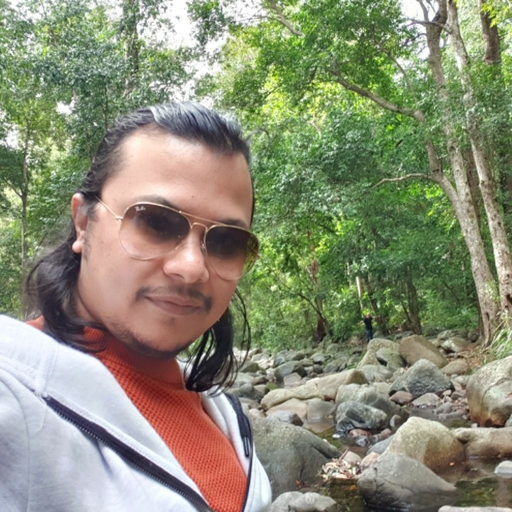At AU tech jobs(ATJ), 2020 was our first year in operation. We came together as a remote team of volunteers who cared deeply about making tech job search a hassle-free process in Australia. This article is about contributors to AUtechjobs - three software engineers who found incredible ways to learn and grow beyond their limitations and used a common side project - ATJ to land a full-time tech job in Australia.
They talk about challenges in job search, what they learned working at ATJ, and how they navigated their way to successfully land the prized full-time tech job, all during the crippling pandemic. Let’s get cracking!
Ajeet Chaulagain, Front-end Software Engineer, Melbourne, AU
Ajeet has been into creating his own pet projects since he was in high school. Reflecting upon his childhood days, he shares, “ Born and brought up in Kathmandu, Nepal as a 90’s kid I had limited access to mobile phones or computers. However, I created a simple toy snake game using Action Script in Adobe Flash that received a lot of support and recognition from my loved ones. It might have been a pivotal moment in life that set my direction towards a career in the tech industry.”

Initial challenges faced during the job search process:
Just out of college in Australia, with a master’s degree from the Swinburne University of Technology, Ajeet found himself in an array of job hunting queues only to be rejected after the initial interview.
He further exclaims, “Based on the skills mentioned in the job description, I would select multiple jobs to apply for that matched my own skillset. But I rarely heard back. I would follow up on my job applications, but I was mostly being rejected. It was then that I decided to hit pause on the job hunt and find out why I wasn’t getting hired”
How AUtechjobs(ATJ) happened to him:
In the process of working on his skills and networking with other tech professionals, Ajeet connected with the project lead (another volunteer ) at ATJ through which he joined the team. “After an engaging and fruitful conversation, I was sold on the idea of contributing to ATJ as a frontend engineer", he recalls.
The learning process:
“Through this single side project, I got a chance to enhance several of my skills, including:
- Working effectively with a group of an agile team to release the features through a robust Continuous Integration (CI) / Continuous Delivery (CD) pipeline.
- How to think about edge cases while adding features in a production-grade application to avoid potential issues
- Writing clean, maintainable, and balanced test cases.
- Effective communication between team members to solve the problem.
- How to do effective code reviews.
Also, one of the exciting things for me was a custom Slack Bot at Au Tech Jobs. I really loved deploying features and bug fixes added to the desired environment(Staging, Production) by simply mentioning a bot with a single line of command.
Had I not decided to contribute for ATJ and other side projects I would probably still be frustrated by not landing any exciting offers from my job search,” he muses.
Landing tech jobs as a freelancer:
Ajeet is now working as a successful freelancer by contributing to open source projects and building a solid portfolio. “I am bagging more interviews now”, he concludes.
For recent graduates like him, side projects are a great way to get hands-on experience with applying what you have learned as well as staying upbeat in the current market.
“ Looking back, my decision to prioritize on enhancing skills by running a side project end to end and contributing to open source projects had allowed me the space to build a practical experience that I previously lacked.”
"When I am asked about my work experience at interviews, I am now able to depend on my side projects. I can show myself as someone who has made a difference using the skills that recruiters are looking for”, he says.
Suvash Budathoki, Graduate Software Engineer, IntelliHR, Brisbane, AU
Suvash grew up in Nepal and went to Prime College in Kathmandu. With a vision to get more out of life, he headed towards Australia to complete his higher education, to experience an international culture, and to explore new ways of thinking. Here, he graduated with a master’s degree from CQ Australia in 2018 and started looking for work opportunities.

Initial challenges during job search :
Suvash was on a two-year PSW (Post-study-work)visa while in Australia. He found out that most companies that he looked for were either hiring Australian citizens or Australian permanent residents only; it was challenging to search for Australian companies that would hire a foreigner like himself. This unsaid rule seemed to add an extra challenge to the already competitive tech job market.
Apart from visa issues, he found that lack of work experience became a challenge. ”I have good grades but academic excellence alone wasn't a good measure of a solid resume.” he laments.
“Basically if you don't have a working URL, your chance to land an interview goes down significantly.”
He realized that he needed coding experiences that could stem initially from pet projects, or from courses on platforms like Udemy, or a blog. “ So, I started learning React JS from Udemy,” he says.

How AUtechjobs(ATJ) happened to him:
Exploring volunteer projects to work on came from a deep realization that he had to involve in something more tangible than coding exercises from training programs. “ They were good learning experiences but later I was looking to get my hands dirty on a project. That’s when I found out about ATJ. I came onboard at the end of March 2020 when the pandemic was starting to soar. I knew that this project would give me the platform to level up on my skills and I was excited by the opportunity” he recollects.
Working as a frontend software engineer and later, leading the frontend team:
Suvash shares that having a team to work with was invaluable to his professional growth. “I built the ATJ frontend from scratch and that I guess became one of my biggest learnings. Later I also took on the role of Frontend guardian/lead. It's really inspiring to see how driven he was with ATJ considering that he also working full time at an Elderly Care center. “ Whenever I had free time, I used to spend my time either contributing to ATJ or learning code. I practically stopped binge watching Netflix or Prime Videos and only took short breaks as needed”, he shares.
We had another teammate, Biswash (currently in Nepal), who completed his master’s degree from Sydney. He is one of the most talented people in terms of design that I have ever met. As a team, I would code and he would design. Working together was so much fun” he recalls.
Consequently, Biswash was able to land an internship at a tech company in Sydney, leading to a permanent position now, within the company.
Applying what he learned at a fulfilling tech job in Brisbane
After six months of working for ATJ, Suvash found himself a tech job as a Graduate Software Engineer at IntelliHR, a Brisbane based IT company. He believes that working for ATJ as a side project helped him move forward with a point of strength. Once I joined intelliHR, I realized the gains that came from working with ATJ, he says.
- I was able to understand the basic structure of coding, versioning, and how git works
- My current team members and reporting manager were happy that I was able to start doing frontend tasks independently
- The skills I put to use such as effective code reviews, writing unit tests, and discussion prior to coding helped me and my teammates save time which we put to productive use.
- As a beginner at ATJ I was able to put into practice the basic concepts of programming, which gave me an advantage at job interviews and now at my new tech job.
ATJ became a side project that acted as a threshold of his career in Australia.“ It was overwhelming to not know where to start, but I knew I had to start somewhere,” he quips.
Through his job searching experience, one piece of advice he would like to give job seekers looking for tech jobs is to stay clear of self-doubt and the mentality that “you are not good enough”. “Work experience, knowledge, and skill are part of the journey and can be gradually developed,” he inferred.
Arpan KC, Junior Fullstack developer, A2B Australia, Sydney, AU
Growing up in Kathmandu, Nepal from humble beginnings, Arpan recalls not being particularly good at anything and being an introvert. “I went to a government school in my early years and later joined boarding school. Somewhere between grade 8 and grade 10, I figured that I wanted to be a “professional programmer" whatever that meant to me at that time. That is one reason why I believe I’m very lucky (to know early in my life what I wanted to do). From then on, this goal was always at the back of my mind and has guided every major decision until now.”

Initial challenges during the job search process:
After a fair share of working other jobs to sustain himself, Arpan began zoning in on finding a tech job that suited his skills.
Some challenges I faced:
- I was rejected multiple times because of my visa status (I’m on a Temporary Residence Visa), Later I added my visa status on my resume, that way recruiters/managers know early on. I think that helped.
- Lack of knowledge on how software engineers collaborated in teams (what tools they used, how they used them etc). These are the things that demonstrate you’re a professional in an interview in my opinion.
- The interview process seemed very daunting, and like most engineers, I suffer from what they call ‘imposter syndrome". So I did not apply to as many places as I should have.
How AUtechjobs(ATJ) happened to him
Arpan began approaching professionals to review his resume and stumbled upon ATJ by accident. He had approached one of the team members contributing to ATJ to review his resume. “I’d read his blog posts many times floating around LinkedIn. I had no doubt about his knowledge of the industry and that he was someone that a wannabe developer like me could hope to be. When I was approached with a project like ATJ, I said yes straight away because I knew this was an opportunity for rapid growth” he remembers.
Landing a job as a Junior Fullstack developer
After working at ATJ as a volunteer for six months, Arpan successfully landed a role in A2B Australia where he currently works. Having a side project to fall back on has been helpful to him not just to land a job but also for numerous other reasons. He lists some ways in which ATJ helped him grow.
Aside from being able to put this on my resume, the experience at ATJ taught me:
- How to collaborate in a team ( the tools and methodology): Eg, I finally learned how to use Github properly, worked with a Kanban board (with other people), learned to communicate effectively in a team. These are the things that you do in commercial settings and this gave me something substantial to talk about in my interviews.
- Experience with Cloud services(GCP), also helped.
- I learned the things that make awesome software ( a lot of tests & a smooth CI/CD pipeline)
- Mentorship from Geshan dai(meaning brother in Nepali) was the most important, every feedback and code review I got, I worked on it diligently. I can say that the mentorship I received was instrumental in me becoming a more relevant candidate for recruiters.
Moving forward:
“I think there is no better learning experience to code than building through projects. Before ATJ, I had been working on other side projects too.” But, not all of his side projects have had the same impact during tech interviews.
“It is essential that side projects are relevant to the job you are applying for”
“They can give you a feel for the real tech world, at least that's what ATJ did for me,” he says. As for advice to job seekers, he shares some basic but very useful tips. “From my experience, the most important things are:
- Keep building stuff (get involved in projects from start to finish)
- Collaborate when you can
- Find a mentor
- Keep finding ways to get your work reviewed
These are my advice on what makes you a solid candidate and may help you find a tech job.”
Conclusion
A relevant side project or updated portfolio is a great way to build a platform that showcases your body of work without having to involve in a full-time job. They act as validation to your skills and make you stand out in interviews. Not just that, you could navigate your way into far better remuneration packages by justifying your expertise with the work you have done.
Job seekers can use side projects to tap into new opportunities. Thanks to the pandemic, you can work from anywhere around the world as working remotely is becoming the norm. Side projects also help you stay updated with tech industry trends. These engineers have proven in many ways, that a relevant and meaningful side project can be beneficial to help you successfully land a dream tech job.

